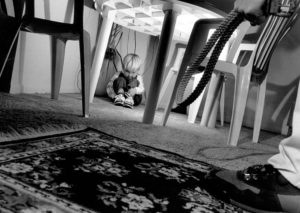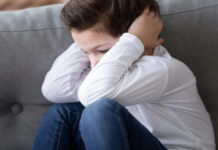Different types of child abuse have equivalent psychological effects, according to a study in JAMA Psychiatry. It has previously been assumed that emotional and verbal abuse could have different or less harmful impact on a child’s psychology than physical or sexual abuse, but research now suggests that these forms of abuse can be just as damaging.
 It is estimated that nearly forty percent of children worldwide suffer some kind of emotional abuse or neglect, referred to as child maltreatment (CM). Research has connected these non-sexual forms of maltreatment with a broad range of mental health problems, including depression, anxiety, eating disorders, substance use, and suicidal behavior. However, legal punishments for many forms of maltreatment largely vary, with some carrying felony sentences while others may be frowned upon but legal. The standard “nonequivalence” assumption is that child maltreatment has less severe long-term psychological effects than physical and sexual abuse.
It is estimated that nearly forty percent of children worldwide suffer some kind of emotional abuse or neglect, referred to as child maltreatment (CM). Research has connected these non-sexual forms of maltreatment with a broad range of mental health problems, including depression, anxiety, eating disorders, substance use, and suicidal behavior. However, legal punishments for many forms of maltreatment largely vary, with some carrying felony sentences while others may be frowned upon but legal. The standard “nonequivalence” assumption is that child maltreatment has less severe long-term psychological effects than physical and sexual abuse.
To test this hypothesis, a team of researchers led by David Vachon at McGill University studied 2,292 children enrolled at a summer camp between 1986 and 2015. The camp allowed for the children, who had previously suffered forms of maltreatment, to be psychologically assessed from multiple perspectives, including by their peers and counselors, over several years.
“Our results suggest that physical abuse, emotional abuse, and neglect are equivalent insults that affect broad psychiatric vulnerabilities,” they wrote.
The study is limited by the fact that there is no way to separate out the effects of childhood sexual abuse because it co-occurs with other forms of maltreatment and it is often underreported.
They conclude:
“Finally, population-level prevention and intervention strategies should not ignore the considerable psychological harms imposed by emotional abuse, which rival those of physical violence and neglect. Taken together with high worldwide prevalence and evidence that emotional and physical pain share a common somatosensory representation in the brain, it is clear that emotional abuse is widespread, painful, and destructive.”
*
Vachon, D. D., Krueger, R. F., Rogosch, F. A., & Cicchetti, D. (2015). Assessment of the harmful psychiatric and behavioral effects of different forms of child maltreatment. JAMA psychiatry, 1135-1142. (Abstract)















I believe these are prevalent and insidious forms of mental and emotional abuse all too common in childhood, and in the mental health field–
https://en.wikipedia.org/wiki/Double_bind
https://en.wikipedia.org/wiki/Gaslighting
Report comment
In many regards physical abuse seems like the least damaging compared to sexual or emotional abuse. Though the long lasting damaging effects of physical abuse would be emotional/psychological, not necessarily physical, so it’s hard to tell.
And emotional neglect can be just as harmful as emotional abuse. Feeling like nobody cares and having nobody to talk to, turn to, or help you, especially your own family/parents, is incredibly damaging.
Report comment
Also, I know that kids can be bullied in the family, and part of that bullying is outright denying that abuse is taking place, and instead, they make the child believe that they are “imagining things,” which is not only neglectful to the child and dissmissive of their perspectvie, but I think that’s one of the most sinister abuses, and really cruel to a child.
A lot of children who feel alientated in families have a “golden child” sibling who are part of the bullying system, and side with the abusers (by dissociating and kissing ass, basically) in order to protect their own interests, leaving the vicitmized child to fend for themselves. That kind of neglect-turned-gaslighting is sadly all-too-common, from what I’ve witnessed and experienced over the years, and is rather twisted and sinister, to my way of thinking. But it repeats at an alarming right, I think.
Even if it is not clear what is occuring, to outright try and humiliate a child for standing up for themselves is madness in and of itself. I know that, as adults, victims of emotional abuse in the mental health system are often dismissed as ‘paranoid’ or some other label intentded to stigmatize a person out of credibility.
Overall, I see this as how mental illness occurs–at the very least, a great deal of self-recriminating voices become internalized at this point, along with rage, despondence, hopelessness, utter lack of safety, and overall, terminal broken-heartedness per deeply embedded heart wounding. I think this is at the core of our ‘sick society.’
Report comment
that is, “repeats at an alraming RATE…”
Report comment
well said
Report comment
Thanks, Dr. B. I’ve been influenced by your play of consciousness and how we can navigate those roles to discover truth. Thanks so much writing about this!
Report comment